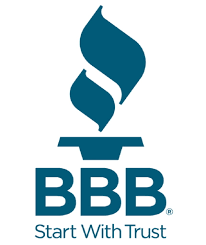
Chris Holman catches up with Melanie Duquesnel, President & CEO, Better Business Bureau of Eastern Michigan, Southfield, MI. For July they discuss new restrictions adopted last year by the Federal Trade Commission (FTC). Your rights have an extra layer or two of protection when it comes to telemarketing calls. The laws focus on what can and can’t be done during a robocall.
What is a robocall? You’ve more than likely received recorded messages on your cellphone or landline. Instead of a live person on the other line, you hear a message that runs from start to finish.
What kind of robocalls are legal? Those that aren’t trying to sell you something and dispense helpful information are still legal. These messages include calls from your senator regarding a current political campaign, a pharmacy letting you know a prescription is ready or your child’s school alerting parents to schedule changes. Such calls are exempt from the updated restrictions and are still legal.
But if the recording is trying to sell you something, you have some rights to protect yourself. In fact, the FTC reports that they’ve brought more than 100 lawsuits against 600-plus different companies and individuals for illegal robocalls and other Do Not Call violations.
What does the new law do? The new law outlines three big changes in what telemarketers can ask you for over the phone.
1. It’s now illegal for telemarketers to request payment for anything using ash-to-cash money transfers like those provided by MoneyGram and Western Union.
2. It’s illegal for telemarketers to ask you for PIN numbers from cash reload cards like MoneyPak.
3. Telemarketers are also now restricted from asking you for an unsigned check, sometimes referred to as a “remotely created payment order” to pull funds directly from your checking account.
What are my robocall rights? The new telemarketer laws require that companies get your written consent to receive calls soliciting products or services. An established relationship between you and a company you’ve done business with in the past no longer gives that company a right to call. Instead, these new rules require that telemarketers allow you to opt out of receiving additional calls through a prerecorded call or automated menu.
Registering your home and mobile phone with the National Do Not Call registry should help you reduce the number of unwanted robocalls you receive. Also, using your phone’s caller ID can be a big help in sidestepping numbers you don’t recognize that may be unwanted robocalls.
There are harsh penalties for companies that break the new FTC rules and BBB reports telemarketers can face penalties of up to $16,000 per call.
What can I do? The best defense against robocalls is to simply not pick up the phone if you don’t recognize the incoming number. Additionally, the following tips can help you sidestep unwanted calls:
• Hang up. If you receive an automated call, don’t press any numbers that may prompt you to be connected to an operator or to opt out of a list. If you interact with the call, there is a bigger chance you’ll receive additional robocalls.
• Don’t share personal info. If the call asks you to input a bank account, credit card or Social Security number, hang up immediately.
• Block the call. Once you realize you’ve received a robocall, block the number. You can do this through your cellphone or by calling your phone provider.
• Report the call. You can file a formal complaint with the FTC on its website or by calling (888) 382-1222.
• Sign up for the National Do Not Call registry. You can register your mobile and home numbers at www.donotcall.gov.
If you’ve received a robocall from a telemarketer, visit BBB Scam Tracker and report the interaction. This will help the BBB track the issue, as well as let your neighbors know there’s a scam affecting the neighborhood.
###
About Better Business Bureau Serving Eastern Michigan and the Upper Peninsula Better Business Bureau Serving Eastern Michigan and the Upper Peninsula is a non-profit organization with the purpose of promoting trust in the marketplace by assisting in the protection of consumers and businesses from fraud and unethical business practices. In addition to its recognized dispute resolution services, BBB maintains business reviews on the customer service history of more than 85,000 local businesses and provides consumer education materials on numerous topics. BBB provides its services free to the public and its service territory stretches across Eastern Michigan from Ann Arbor through Metropolitan Detroit, Lansing, Flint, upward to Alpena, and covers the entire Upper Peninsula of the state.












